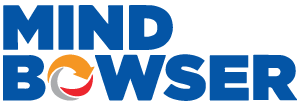The shift to digital records through EHR and EMR systems has significantly transformed healthcare, including the home healthcare sector. The worldwide EHR/EMR market was valued at USD 32.23 billion in 2023 and is expected to increase at a CAGR of 4.43% between 2024 and 2030.
The EHR for home healthcare offers a more organized and efficient approach to managing patient data and delivering care. The integration of EHR systems ensures that patient information is readily accessible and up-to-date, directly contributing to better patient outcomes and streamlined care processes.
As home healthcare keeps expanding, EHR and EMR are becoming more important than ever. These digital tools not only keep everyone on the care team in the loop, but they also help ensure that decisions are made quickly and accurately. The result? Patients receive better care right in the comfort of their own homes.
Different Home Health Care Services
Let's start by breaking down what home healthcare services actually involve. It's more than just a nurse stopping by to check on a patient. Home healthcare includes a wide range of services, from physical therapy and wound care to helping manage chronic conditions like diabetes or heart disease. It’s all about providing the right level of care, right where patients need it most—in the comfort of their own homes.
Here are a few home health care services to mention:

🔹 Nursing Care
Imagine a nurse visiting you at home, providing the medical care you need while also helping with daily tasks. In-home nursing care does just that, offering personalized support right at your doorstep. With EHR for home health care, nurses can easily manage patient records, keep track of medications, and coordinate with other care providers to ensure everything runs smoothly.
🔹 Physical Therapy
Think of physical therapy as a personal trainer for your recovery. Whether you’re bouncing back from an injury or managing a chronic condition, having tailored exercises can make all the difference. With EMR for home health care, physical therapists can document your progress, tweak your treatment plan as needed, and stay in touch with the rest of your care team, ensuring a coordinated approach to your recovery.
🔹 Occupational Therapy
Regaining skills for daily living, like cooking or dressing, can be a significant part of recovery. Occupational therapy helps patients rebuild these abilities, and EHR systems make tracking sessions and progress much easier. This digital tool also helps keep all your care providers on the same page, ensuring your therapy aligns with the overall care plan.
🔹 Speech Therapy
For those working on communication or swallowing challenges, speech therapy is a crucial support. Imagine your speech therapist being able to access detailed records of your therapy sessions and progress with just a few clicks. EHR for home health care keeps everything organized, making it easier for therapists to collaborate with other professionals and provide the most effective support.
🔹 Personal Care
Daily personal care, like bathing and meal preparation, is essential for many patients. Home health aides provide this support, and EMR systems track every detail of the care provided. This ensures that all services are consistent and meet each patient’s specific needs, making sure they get the right care every day.
🔹 Home Health Monitoring
Keeping tabs on health metrics, such as blood pressure and glucose levels, is important for managing chronic conditions. EHR systems collect and integrate this data, offering real-time insights that allow healthcare providers to adjust care plans promptly. This ongoing monitoring helps ensure that patients receive timely and effective care at home.
🔹Medical Social Services
Dealing with the medical and emotional ups and downs of illness can feel like an uphill battle. That’s where medical social services step in, offering a helping hand to both patients and their families. Imagine having someone who not only understands your struggles but also helps you navigate them. With EHR for home health care, social workers can easily manage your case details, team up with other care providers, and make sure you have all the support and resources you need right when you need them.
Discover how implementing EHR can improve patient outcomes and streamline your operations.
The Role of EMR Software in Home Health Care
EMR software in home healthcare plays a crucial role in supporting and improving patient management from the comfort of their own homes. Providing a digital record of patient information simplifies access to essential data and supports better coordination among different healthcare providers.

🔹 Improving Patient Care Coordination
With EHR for home health care, clinicians can access patient records anytime, anywhere. This seamless access to up-to-date information ensures that everyone involved in a patient's care is on the same page, leading to better communication and more coordinated care.
🔹 Real-Time Updates for Caregivers
EMR for home health care allows real-time updates on patient conditions. Whether it’s a change in medication or a new symptom, caregivers can adjust their approach immediately, providing timely and appropriate care without delay.
🔹 Streamlining Administrative Tasks
Managing paperwork is often a time-consuming task for healthcare providers. EHR for home health care automates many of these processes, allowing healthcare professionals to spend less time on paperwork and more time focusing on patient care.
🔹 Tracking Patient Progress Efficiently
One of the key benefits of EMR for home health care is its ability to track patient progress over time. Detailed records of each visit, treatment, and outcome are maintained, helping clinicians to adjust care plans effectively and ensure that patients are on the right path to recovery.
🔹 Data Security and Compliance
In-home health care, protecting patient information is paramount. EHRs for home health care systems are designed with built-in security features, ensuring that sensitive patient data is kept safe and that the practice complies with all necessary regulations.
🔹 Enhancing Data Management
EHR systems transform data management by consolidating patient records, therapy notes, and medication histories into a single, easily accessible platform. This centralization simplifies how healthcare providers handle and update patient information, making it more straightforward to track progress and coordinate care. An integrated EHR for home health care unifies various aspects of a patient’s health data but also ensures that all relevant information is at the fingertips of those involved in the patient's care.
🔹 Meeting Healthcare Regulations with EHRs
Home health care providers must comply with various regulatory requirements, including HIPAA and FHIR for patient privacy and CMS guidelines for documentation. EHR and EMR systems for home health care simplify meeting these standards by automating and organizing documentation. They provide tools for accurate record-keeping and timely reporting, reducing the risk of non-compliance. By integrating compliance features directly into the workflow, these systems help ensure that all regulatory requirements are met effectively and efficiently.
🔹 Automated Documentation for Peace of Mind
EHR for home health care automates much of the documentation process, making it easier to ensure that all patient records are accurate and up-to-date. It reduces the burden on healthcare providers but also helps in meeting compliance requirements without the hassle.
For example, a home health agency using an EHR for home health care can quickly generate accurate reports on patient visits, treatment outcomes, and billing records, ensuring a smooth audit process.
🔹 Secure Data Storage
Patient data security is a key component of regulatory compliance. EMR for home health care offers secure data storage solutions that meet industry standards, ensuring that patient information is protected and that providers comply with privacy laws.
🔹 Consistent Compliance Monitoring
With EHR for home health care, providers can set up regular compliance checks, such as HIPAA and FHIR monitoring, within the system. This feature helps identify potential issues before they escalate, ensuring that care practices consistently meet regulatory standards.
What All We've Covered?
This video discusses EHR integration, explaining what it is and why it's crucial in modern healthcare. It covers the benefits of EHR integration, including improved patient care, reduced errors, streamlined workflows, and better communication among caregivers. It also explores challenges like data incompatibility and privacy concerns. Additionally, the video mentions common standards and protocols used in EHR integration and showcases real-world use cases.
Success Stories of EHR in Home Health Rehabilitation
1️⃣ Streamlining Patient Care for a Home Health Agency
One of Mindbowser's clients, a home health agency, faced challenges in managing patient data across multiple locations. Implementing an EHR for home health care provided a centralized system, allowing the organization to maintain accurate patient records and coordinate care effectively. As a result, the agency saw a significant improvement in patient outcomes, with reduced errors in documentation and better communication between care teams.
2️⃣ Enhancing Workflow Efficiency for a Rehabilitation Center
A rehabilitation center partnered with Mindbowser to implement an EMR for home health care, aiming to improve workflow efficiency. The center successfully integrated the EMR system with their existing software, enabling real-time updates and easy access to patient information. This change reduced administrative tasks and allowed healthcare providers to focus more on patient care, leading to improved patient satisfaction and quicker recovery times.
3️⃣ Improving Compliance and Reporting for a Home Health Service Provider
Mindbowser assisted a home health service provider in navigating complex regulatory requirements by implementing an EHR system. The EHR for home health care was customized to meet HIPAA and CMS guidelines, automating reporting processes and ensuring compliance with industry standards. The provider experienced fewer compliance issues and streamlined their audit processes, ultimately enhancing the overall efficiency of their operations.
Adopting an EHR for home health care has led to notable improvements in patient care and operational efficiency. With centralized patient records, healthcare providers can access accurate and up-to-date information, which has minimized errors and improved the quality of care. Communication between care teams has become more efficient, leading to better coordination and more effective treatment plans.

Complete Guide for Complying with HIPAA Regulations
This guide aims to provide you with an understanding of the alterations that have occurred in HIPAA regulations as a result of the COVID-19 pandemic.
Future Trends: The Evolution of EHR in Home Health Care
🔹 AI and Predictive Analytics in EHR for Proactive Care
Incorporating AI into EHR systems allows for the analysis of patient data to identify patterns and predict potential health issues before they arise. This approach can lead to more proactive and personalized care.
For example, we worked with one of the efficient healthcare platforms that implemented EHRs to collect patient data during consultations. The patient data integrated into the platform helps providers analyze and take decisions efficiently.
🔹 Expansion of Telehealth Capabilities
As telehealth becomes more prevalent, EMR for home health care will adapt to support this growing trend. The evolution of EHR systems will likely include integrated telehealth features, making it easier for providers to conduct virtual visits, document interactions, and share information seamlessly across platforms. It will allow patients to receive quality care from the comfort of their homes, while providers maintain accurate and up-to-date records without the need for in-person visits.
Related read: Telehealth in Home Health Care: Enhancing Patient Outcomes Through Innovative Solutions
🔹 Enhanced Patient Engagement
In the coming years, EHR for home health care is expected to become more patient-centered, offering tools that engage patients in their care. Future EHR systems may include patient portals with interactive features, allowing individuals to access their health records, schedule appointments, and communicate with their care teams directly. The increased transparency and access will empower patients to take a more active role in managing their health, leading to better outcomes and greater satisfaction. EHR systems will help create a more collaborative healthcare experience, focusing on patient engagement.
🔹 Improved Interoperability Across Platforms
The future will see EMR for home healthcare systems breaking down barriers with interoperability and improving the ability to share data across different platforms and providers. As healthcare becomes more interconnected, the demand for systems that can communicate with each other will grow. Future EHR solutions will ensure that patient information flows seamlessly between various healthcare settings, from hospitals to home care.
🔹 Incorporation of Wearable Technology Data
With the rise of wearable health devices, EHR for home healthcare systems will increasingly incorporate data from these technologies. Future EHR systems will likely include features that allow the real-time integration of data from devices such as heart rate monitors, glucose sensors, and fitness trackers. This continuous stream of information will provide healthcare providers with a more comprehensive view of a patient’s health, allowing for more precise monitoring and timely interventions.
🔹 Enhanced Data Security Measures
As EMR for home healthcare continues to evolve, so will the focus on data security. With the increasing amount of sensitive patient information stored digitally, future EHR systems will prioritize advanced security measures to protect against data breaches and unauthorized access. Expect to see more robust encryption methods, multi-factor authentication, and continuous monitoring to safeguard patient data.
Related Read: Securing Healthcare: The Critical Role of Data Security
How Mindbowser Can Help Integrate EHR into Your Home Health Rehabilitation
Mindbowser offers a unique approach to integrating EHR systems into home health rehabilitation, making it easier for healthcare providers to manage patient care. By consolidating patient records and enabling real-time updates, we build solutions that address common challenges such as data fragmentation and manual errors. This integration boosts efficiency. of care delivery and ensures that patient information is accurate and up-to-date, which is important for providing high-quality, coordinated care.
Our expert team works closely with home health agencies to customize the EHR integration process, addressing specific needs and ensuring compliance with regulatory standards. The Mindbowser approach streamlines the implementation of EHR systems, decreasing administrative burdens on healthcare professionals and allowing them to focus more on patient care. The result is a more streamlined operation that improves patient outcomes and adheres to necessary compliance requirements.
Frequently Asked Questions
- What are Electronic Health Records (EHR) and how do they benefit home health rehabilitation?
EHRs are digital systems for storing and managing patient information. They support home health rehabilitation by improving patient data management, facilitating better communication among care teams, and ensuring compliance with regulations.
- How does EHR for home health care improve patient care coordination?
EHRs enable healthcare providers to access and update patient information in real-time, leading to better coordination between doctors, nurses, and other caregivers, which improves overall patient care.
- What role does EMR for home health care play in data management?
EMR systems centralize patient records, including treatment plans and medical histories, making it easier to manage and retrieve patient data, thus improving the efficiency and accuracy of care.
- What are the differences between ready-made and custom EHR solutions, and how do they impact healthcare organizations?
EHR systems streamline documentation and reporting processes, helping home health care agencies meet regulatory requirements and avoid penalties by maintaining accurate and up-to-date records.
- What are the benefits of using EHR for home health care in terms of security?
EHR systems provide secure access to patient data, ensuring that only authorized personnel can view or modify information. They also help in meeting data protection standards, reducing the risk of breaches.

Sanjeev Kumar, Chief Customer Officer Mindbowser
Sanjeev Kumar is a digital leader with experience in driving business growth and improving customer satisfaction in the healthcare industry. As Chief Customer Officer at Mindbowser, Sanjeev is responsible for customer success and business development within the niche product engineering organization. He focuses on delivering digital transformation solutions to clients in various sectors, including HealthTech, MedTech, FinTech, EdTech, Omni Channel, and Logistics. His expertise extends to enabling startups to accelerate their time-to-market through the use of generative AI and the HealthConnect platform.
Let's Get In Touch
One thing that really stood out to me is the culture and values of the Mindbowser team.

Sanji Silva
Chief Product Officer, Mocingbird
I am so glad I worked with Mindbowser to develop such an Impactful Mobile app.

Katie Taylor
Founder and CEO, Child Life On Call
Mindbowser was an excellent partner in developing my fitness app.

Jirina Harastova
Founder, Phalanx Ubiquity
The team understood the challenges faced by both CME administrators and clinicians and translated that understanding into building the platform. We're totally impressed by their deep domain and technology expertise in creating a solution that empowers both administrators and medical professionals.

Ian Modam
CEO & Co-Founder, Mocingbird
Mindbowser team’s expertise and dedication has been instrumental in improving our platform’s efficiency. We have observed a reduction in average delivery time since the integration. Kudos to the wonderful team!!!!

Anish J. Shah
Founder, BirthModel
Mindbowser built both iOS and Android apps for Mindworks, that have stood the test of time. 5 years later they still function quite beautifully. Their team always met their objectives and I'm very happy with the end result. Thank you!

Bart Mendel
Founder, Mindworks
Some of the features conceived, implemented, and designed by the Mindbowser staff are amongst our most popular features.

Matthew Amsden
CEO, Proofpilot
Mindbowser is one of the reasons that our app is successful. These guys have been a great team.

Dave Dubier
Founder & CEO, MangoMirror
The Mindbowser team's professionalism consistently impressed me. Their commitment to quality shone through in every aspect of the project. They truly went the extra mile, ensuring they understood our needs perfectly and were always willing to invest the time to deliver exactly what we envisioned.

Spencer Barns
Chief Technology Officer, New Day Therapeutics
Kudos for all your hard work and diligence on the Telehealth platform project. You made it possible.

Joyce Nwatuobi
CEO, ThriveHealth
Post a comment Cancel reply
Related Posts
How MedPlum Helps Healthcare Organizations In Data Management
MedPlum serves as a headless EHR, designed to help healthcare organizations build a variety of…
Benefits and Challenges of The Electronic Health Record
Technology advancement, like Electronic Health Records, has changed the conventional direction of the healthcare industry.…
Choosing Between Ready-Made and Custom EHR Solutions
In the US, EHR solutions form the heart of healthcare reform. Healthcare companies often require…
Securing Healthcare: The Critical Role of Data Security
According to the HHS website, 725 data breaches were reported in 2023 alone, affecting more…









